Back to series
What Accounts for the
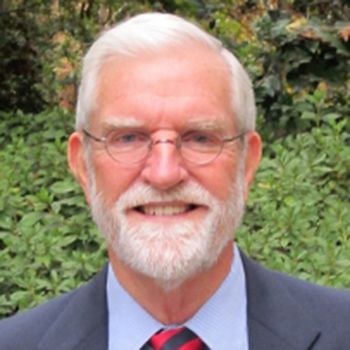

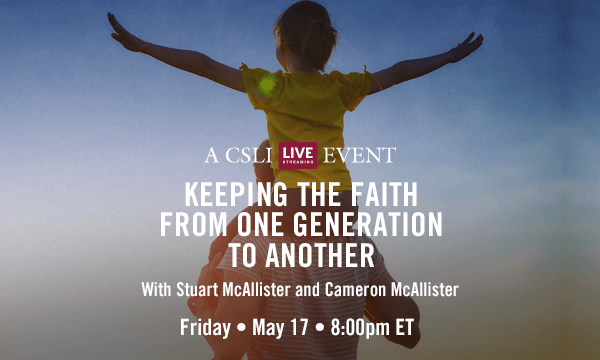
What Accounts for the
Powerful Spiritual Impact of C.S. Lewis?
VOLUME 2 NUMBER 3 ISSUE OF BROADCAST TALKS (PDF)
BROADCAST TALKS presents ideas to cultivate Christ-like thinking and living. Each issue features a transcription of a talk presented at an event of The C. S. Lewis Institute. The following is adapted from the opening talk given at the 2016 C.S. Lewis Institute Summer Conference, The Spiritual Formation of C.S. Lewis, held at the Marion E. Wade Center, Wheaton College (IL). This talk, the first of six presented by Lyle Dorsett at the conference, explores why C.S. Lewis had, and continues to have, such a powerful spiritual impact on so many people. (The Wade Center is a major research collection of matierals by and about seven British authors including C.S. Lewis).
As you stand back, as I travel around, as I talk to people, the impact of C.S. Lewis is everywhere. Some of the most powerful Christians in this country and other parts of the world came to Christ through the impact of C.S. Lewis. I think of Chuck Colson. I think of Rebecca Pippert, Helen Joy Davidman, and of course, Os Guinness, all kinds of people. The list goes on and on.
C.S. Lewis’s books have been extremely important to me. Lewis’s and Chesterton’s writings were instrumental in my conversion from agnosticism to the Christian faith. And certainly Lewis has been one of my best teachers over the years on so many things. I didn’t really know anything about spiritual warfare until I read The Screwtape Letters. I’d never read anything very sophisticated on miracles until I read Miracles, and on and on the list goes. I can’t wait to meet him and thank him.
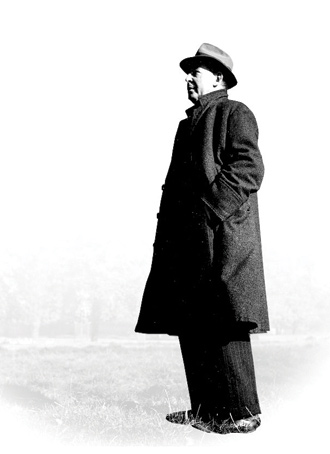 I have a habit – it’s become kind of a professional habit – that if there’s an author who has really blessed me or influenced me, I like to know what’s made that person tick. I want to know how that person matured spiritually. Lewis has had such a profound impact on me that I wanted to know how he grew in the faith. One thing that I have found rather, frankly, tedious is reading biographies that show you little Jack, as Lewis was known to his friends, growing up with his brother Warnie, the devastating time with Mom when she died, how they fall into agnosticism if not atheism, and then they convert, and all of a sudden C.S. Lewis is this powerful Christian who’s writing all these great books that are changing the world. Well, that’s an interesting picture, but it’s just not very valid, because the truth is that Christians are birthed into the kingdom, and they have to grow just like children do. They’re birthed, they have to be nurtured, they have to grow, and the thing that I wanted to know more than anything but couldn’t find much about – you’d get hints here and there in books – I wanted to know how this man went from his new birth in Christ into becoming the kind of soul that could have such an impact on so many people. That was the burning desire in my heart.
I have a habit – it’s become kind of a professional habit – that if there’s an author who has really blessed me or influenced me, I like to know what’s made that person tick. I want to know how that person matured spiritually. Lewis has had such a profound impact on me that I wanted to know how he grew in the faith. One thing that I have found rather, frankly, tedious is reading biographies that show you little Jack, as Lewis was known to his friends, growing up with his brother Warnie, the devastating time with Mom when she died, how they fall into agnosticism if not atheism, and then they convert, and all of a sudden C.S. Lewis is this powerful Christian who’s writing all these great books that are changing the world. Well, that’s an interesting picture, but it’s just not very valid, because the truth is that Christians are birthed into the kingdom, and they have to grow just like children do. They’re birthed, they have to be nurtured, they have to grow, and the thing that I wanted to know more than anything but couldn’t find much about – you’d get hints here and there in books – I wanted to know how this man went from his new birth in Christ into becoming the kind of soul that could have such an impact on so many people. That was the burning desire in my heart.
Well, thanks to my being employed at the Wade Center, and thanks to Marjorie Mead, who was instrumental in my coming here, I was able to do a major oral history project: My wife and I would travel to the UK every year; we interviewed, I would think, forty or so people; we always took a video camera and went around and interviewed people who knew Lewis. I got a couple of other young people to do some other interviews. I think we had – at least during my tenure – more than fifty oral history interviews with people who knew C.S. Lewis. They were relatives; they were students of his; they were colleagues, whatever their relationship. We talked to them about Lewis, picked their brains about Lewis, and I would glean things from them on what made him grow spiritually; I learned so many things from different people.
I also had the privilege of going through all the C.S. Lewis letters that have been collected - from the time Clyde Kilby started with a pile of letters he had from C.S. Lewis on down to letters still being identified and acquired by the Wade Center. And in these letters there are many clues, in fact a lot of strong evidence on how Lewis grew and matured spiritually. This is a very important topic, not only because it’s interesting to know about Lewis, but I can tell you this from my own personal experience: once I began to gather together the factors that shaped him as a powerful Christian, it began to change me. I wrote a book on the spiritual formation of C.S. Lewis to help other people, and part of the burden on my heart and soul this week as I’m here with you – I want to convey to you what I found about Lewis’s spiritual formation, what elements were involved, what factors were involved in him growing from infancy into more maturity in Christ, not only to learn about him but to see what can we take and put into practice. But I would say this, and this is really the thesis of what I’m saying tonight and this week: C.S. Lewis’s influence has been wide and deep, and it still is, because of the depth of his spirituality.
It’s very easy to try to explain Lewis’s effectiveness in ways that are obviously part of it but not the real issue. He wrote in so many different genres. He’d get a theme he was keen on, and you’d find it in a poem; you’d find it in a piece of fiction; you’d find it in an essay; you’d find it in a sermon; he would develop these things. So he had this versatility to write in a variety of genres to reach a much wider audience. That’s one thing.
He also had, I think, the advantage of being a convert, a midlife convert. I don’t recommend people waiting to come to Christ until they’re older in life. I think it’s good if people can grow up in the faith and never stray from it. But Lewis knew what the agnostics and the atheists were thinking; he’d been there. He knew the questions they were asking, and he didn’t try to dodge them and pretend they were bad questions; he would reach out and try to speak to those questions. So to me it’s a glimpse of God’s economy. God’s economy is phenomenal to me. Lewis was an agnostic for a long time, perhaps an atheist. But God used that to train him up to make him more effective.
Along with that, Lewis had a commitment – I think any of you here, and a lot of you are writers, if you decide you’re going to write books or articles or anything, you have to decide what audience you’re going to write for. Lewis was an academician. He was a professor of literary history and criticism. He wrote a number of books that were for the colleagues in that academic discipline. His English Literature in the Sixteenth Century is still the standard work in that field. He did that, but he also made a choice to devote much of his time to writing books for ordinary people, intelligent people who had questions, whom he hoped could learn something about . . . In other words, he wrote to commit. He wanted things to get out to the general reader.
Lewis also was very keen on raising and seeking to answer the most difficult questions people come up with about faith. And all of us have tough questions. God, if You’re there, how do we explain this? God, if You are sovereign, why is this happening? And Lewis would wrestle with those questions.
Two more things I want to mention, and then I’m going to dig into some things on spiritual formation, because I’m pointing out things that certainly help explain his impact.
Lewis was a humble man. That humility is manifested in many levels. One is being willing to write books to the general readership when that very effort kept him from getting a professorship at Oxford, because people put him down; they called him a popularizer. I think some of them were jealous of him, but the point is that he did not get a professorship in his own alma mater. Cambridge gave that to him. Lewis was humbled in a lot of other ways. Some people said, “Well Lewis was a great man; he was a man of great faith,” and on and on. Yes he was. But more important, and I hope you’ll think on this, he’s what I’d call a ‘great God’ man. Lewis believed he had a great God. He knew he had a great God. He knew it wasn’t about him or his faith or his strength. He was serving a great God. That is a sign of humility.
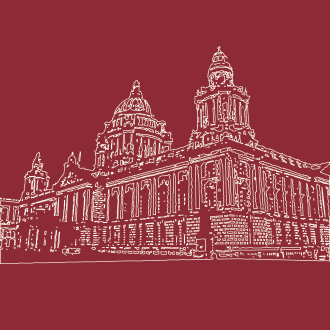 Lewis was radically obedient to what God called him to do. He refused to fall into the trap of a lot of Christians: that if you obey God, you’ve fallen into legalism. No way! You fall into God, you show you love God. You obey Jesus. You show that you’re committed to Him. He’s in charge. You’re His servant.
Lewis was radically obedient to what God called him to do. He refused to fall into the trap of a lot of Christians: that if you obey God, you’ve fallen into legalism. No way! You fall into God, you show you love God. You obey Jesus. You show that you’re committed to Him. He’s in charge. You’re His servant.
Those are some of the things that I think we’ve looked at. You add to that the fact that Lewis had a first-rate mind. He had the privilege of growing up in a home of parents who bought him books. They loved books. He was surrounded by books. He read books all the time. He wrote books even as a child. He was in an environment that was phenomenal. He had that good mind that he was born with. He was well disciplined and had the best educational opportunities somebody could get in the early twentieth century in his part of the English-speaking world. His father got him to Mr. Kirkpatrick, “the Great Knock,” he called him, who was a first-rate tutor and toughened up his mind, but he also got two degrees at Oxford. He had advantages. And so he took advantage of those.
Those things explain his impact but not finally. They’re all factors, but what explains his profound impact, I’m convinced, can be seen in – listen to these words: F.B. Meyer, a Baptist preacher, one time said this (dwell on this for a moment), if he were here, for example, he’d say, “In every born again Christian that’s in this room tonight, the Spirit of Christ is present. In some of the people here tonight, the Spirit of Christ is prominent.” Present in all born again, prominent in some. And then he said, “And in a few, and alas only a few, the Spirit of Christ is preeminent.” And he said, “That’s not because God chooses to dole it out that way; it’s because some people are more in love with Jesus, and they really take seriously John 17:3 [paraphrased]: ‘Eternal life is to know the Father and Jesus Christ whom He has sent.’“ And that intimacy, that knowledge can come only by spending time together sitting at Jesus’s feet, listening to Him and learning from Him. And I’m going to try to show you, in the sessions we have, some of the disciplines Lewis had, some of the things he did that explain the Spirit of Christ was preeminent in Him, preeminent because he’d cooperate when Jesus said, “Come unto Me, Jack Lewis, come unto Me.” He came. And I believe these things. The reason I wrote a book [Seeking the Secret Place] was not only to learn about Lewis but also to help others. We all can grow in these ways, every one of us. And let’s learn from C.S. Lewis.
I have several areas I’m going to go into. I’ll lay them out in five areas. First of all, and I’m taking a quotation from Dorothy L. Sayers, who was a dear friend of C.S. Lewis. She referred to C.S. Lewis as “God’s terrier.” I like to think of that as an Airedale terrier, because I’ve had four Airedales. But whatever terrier it is, it doesn’t make any difference. She said Lewis was God’s terrier. What she’s really saying is he was a purposive man with an evangelistic zeal, and nothing was going to stop him. That’s where we begin.
But along with that is prayer. We’re going to talk about his prayer life, some of the things I’ve learned and been able to take into my own life. His commitment to prayer. He told one person, “Your prayer life needs to be a sustained and regular habit.”
Not only this purposiveness, this evangelistic zeal, and this prayer life, a robust prayer life, Lewis imbibed enormous quantities of Scripture. He trusted the Scriptures. I don’t agree with everything Lewis interpreted by Scripture, some of the positions he took, but who am I? He led more people to Jesus than I ever thought about. He’s mentored more people. But he loved the Scriptures; he trusted them. He said this with regard to Scripture: “Our Lord’s teaching allows no quarter for setting it aside.” So the purposive position, the prayer, the Scripture, and then we’re going to look at the church.
Lewis said this: “The New Testament knows nothing of solitary religion.” A whale of a lot of evangelicals talk about “it’s me and Jesus. I don’t even need to go to church. I don’t like church, too many hypocrites in it. All I need is my Bible. I like ‘it’s me and Jesus.’” Lewis tears into that. He said, “The New Testament knows nothing of solitary religion.” We are grafted into the church when we’re baptized, Lewis believed.
And then a fifth area I’m going to look at is some of his spiritual friends and guides. You all are most familiar, I’m sure, with George MacDonald. Lewis said this: “I regard George MacDonald as my master. I fancy I’ve never written a book in which I did not quote him.” Let me read that again. That is something else. “I regard George MacDonald as my master. I fancy I’ve never written a book in which I did not quote him.” What a compliment. And George MacDonald was a prolific writer, as you know. He wrote forty to fifty novels. They’ve got it all right here at the Wade. He wasn’t a great novelist. Lewis said his stuff is not all that great. But it’s so rich in content. I read somewhere that Lewis thought that the most important novel he wrote was Annals of a Quiet Neighborhood. I teach at a divinity school, trying to help train up the next generation of clergy, and I tell all the men and women in my classes, “Read Annals of a Quiet Neighborhood if you want to know something about pastoral ministry, if you want to know what a real pastor is; how do pastors care for people?” Lewis is reading this stuff. And I’m going to submit to you this week that Lewis was a pastor. You can’t read hundreds and hundreds of his letters, where he was caring for the souls of other people very carefully, and not know, this man’s a pastor. He wasn’t ordained; he’d never attended seminary, but he was a pastor to many people. And I’m going to be talking about that and a number of other things.
Well, I’m going to begin now, and the purposiveness that’s involved in this man’s life is apparent and I’m not going to dwell on that, but I want to begin tonight and talk to you about prayer as one of these factors. We can’t understand the importance of prayer in Lewis’s life if we don’t go back to his childhood. Age nine. The year was 1908. His mother, Flora, had a hard case of cancer. She had a tumor in her abdomen. They lived in Ireland, outside of Belfast, and the surgeon came and performed surgery in the bedroom. Most of you know this if you’ve read much about Lewis. There were two people, one of them was family and the other a nurse or a housekeeper or somebody, who told young Jack and his brother Warnie, “If you guys pray with enough faith, if we all pray with enough faith, Mom’s going to be healed.” Jack said that he and Warnie prayed, they prayed, they prayed, other people prayed. They’d had quotations, you know, to them, Jesus’s words: “Whatsoever you ask” – Mark 11:24 – “Whatsoever you ask, believing that you shall receive, you shall obtain.” Well, Mom died. And the boys were devastated. Where was God? Was He not there? He sure didn’t answer this prayer. What’s this business with Jesus telling us to pray this way, and we’ll get this done? What’s going on? He was devastated, so was his brother. Their father, in the wake of their mother’s death, went into a spiritual and psychological dark night of the soul that he never emerged from. They were young boys and men who had not only lost their mother; they essentially lost their father, for all practical purposes.
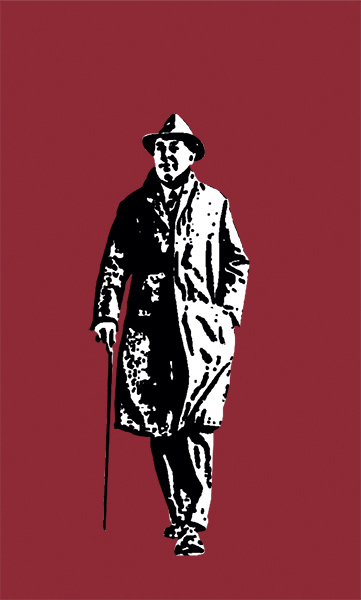 Imagine C.S. Lewis on his way to fight in World War I. What a ghastly war, enormously high casualty rate, and his dad didn’t care enough to even go and meet him at the train before he went off to be a platoon leader in the British army, an infantry officer. Pain, pain, pain; prayer, prayer.
Imagine C.S. Lewis on his way to fight in World War I. What a ghastly war, enormously high casualty rate, and his dad didn’t care enough to even go and meet him at the train before he went off to be a platoon leader in the British army, an infantry officer. Pain, pain, pain; prayer, prayer.
Marj Mead has here – and at some point I think you’ll have it out so people can see it – a Bible that Flora, Mrs. Lewis, gave to each of the boys. Evidently her parting gift to her two boys was a Bible. And she wrote in the front of the Bible – the one that’s still around that people know is here at the Wade – the one that was given to Warnie. It says, “To Warnie with love from Mother” (or it might say Mamy).
Now I think there is something about the efficacy of prayer in this, that this woman’s parting gift to her boys was to give each of them a Bible. This woman knew enough that her boys were going to come into a hard time. She knew her husband. She also knew that there was a lot of prayer, probably a lot of name-it-and-claim-it prayer going on, and she probably knew full well she wasn’t going to make it. People tend to understand that sometimes. And you know her parting gift to her boys was not only a Bible; she knew they wouldn’t pitch, because it’s a parting gift from Mom; maybe they’d get into it. And I can’t help but thinking she was storming heaven and saying, “O Hound of Heaven, pursue my boys when the going gets rough. When my boys turn from You in despair, pursue them. Put people in their paths who will do what I can no longer do.” I can’t prove that that was her thought, but it’s an interesting parting gift — isn’t it? — that the boys got that.
As you flow out from this, what you find is C.S. Lewis coming down the road. If I were titling this session on prayer, I would use the phrase that he used in a letter he sent to a man who came to Christ through his prayers and his witness. He said this: “Be busy learning to pray.” Lewis always maintained that he was a rather inferior pupil in the school of prayer; he didn’t get too far in it. But he said, “I’m trying to keep learning to pray.” He wrote to Sheldon Vanauken the most important advice he could give to this newborn Christian: “The enemy, Satan, will not see you vanish into God’s company without an effort to reclaim you. Your next move,” Lewis urged, “is to be busy learning to pray.” He felt the most important weapon and protection he could give, suggest, to Vanauken for the preservation of what God had started in him was for him to get busy at prayer — and, understand, he didn’t know much about it — “Be busy learning to pray.”
Lewis’s prayer life did not become robust as soon as he converted. It’s really wrong to see things in that way. He knew prayer was important. What he was saying to Sheldon Vanauken about being busy learning to pray, Lewis had to learn on his own, and he began to grow in it. Lewis says, “Prayer flows naturally from having met the Lord.” He said this: “If you believe in God, what is more natural than to address Him?” But he goes on to say that if it’s natural, it still needs discipline, and it needs to be developed. We don’t like that, especially in a drive-through, instant culture. It’s natural, but it needs discipline and development. Be busy learning to pray.
Lewis commented that his prayer life was never easy. He had a number of disciplines that he employed. He never found his prayer life to be easy, but he increasingly found it to be meaningful and enriching.
[The complete version of this talk, as well as the other five talks given by Lyle Dorsett at the 2016 C.S. Lewis Institute Summer Conference, are available by following the links included in the following C.S. Lewis Institute resource: “Learning from the Spiritual Pilgrimage of C.S. Lewis, A Six-Part Video Series by Lyle Dorsett” The same basic content as presented in the videos, as well as additional material, is included in Lyle Dorsett’s book Seeking the Secret Place: The Spiritual Formation of C.S. Lewis (Grand Rapids, MI: Brazos Press, 2004).]


Lyle Dorsett
Professor, Senior Fellow for Spiritual Formation, CSLILyle Dorsett, Professor, holds the Billy Graham Chair of Evangelism at Beeson Divinity School in Samford University. He taught courses in evangelism, spiritual formation and church history. He also serves as the pastor of Christ the King Anglican Church in Homewood, Alabama. Lyle received his PhD in American history and has published numerous books, including several Christian biographies and three works on C. S. Lewis.

 COPYRIGHT: This publication is published by C.S. Lewis Institute; 8001 Braddock Road, Suite 301; Springfield, VA 22151. Portions of the publication may be reproduced for noncommercial, local church or ministry use without prior permission. Electronic copies of the PDF files may be duplicated and transmitted via e-mail for personal and church use. Articles may not be modified without prior written permission of the Institute. For questions, contact the Institute: 703.914.5602 or email us.
COPYRIGHT: This publication is published by C.S. Lewis Institute; 8001 Braddock Road, Suite 301; Springfield, VA 22151. Portions of the publication may be reproduced for noncommercial, local church or ministry use without prior permission. Electronic copies of the PDF files may be duplicated and transmitted via e-mail for personal and church use. Articles may not be modified without prior written permission of the Institute. For questions, contact the Institute: 703.914.5602 or email us.
-
Recent Podcasts
A Welcome Change in Apologetics
by Randy Newman, Aimee Riegert on April 19, 2024We’re burdened for our friends who don’t know...Read More
-
Questions That Matter Podcast – Samuel James and Digital Liturgies
by Samuel James, Randy Newman on April 19, 2024
-
The Side B Stories – Dr. James Tour’s story
by Jana Harmon, James Tour on April 12, 2024
-
Recent Publications
Isn’t Morality Relative?
by Christopher L. Reese on April 1, 2024It is widely accepted in the Western world...Read More
-
Do Muslims and Christians Worship the Same God?
by Andy Bannister on March 1, 2024
-
Artificial Intelligence and Its Impacts on Humanity
by John Lennox on February 13, 2024
0
All Booked
0.00
All Booked
0.00
All Booked
22140
GLOBAL EVENT: Keeping the Faith From One Generation To Another with Stuart McAllister and Cameron McAllister, 8:00PM ET
https://www.cslewisinstitute.org/?event=global-event-keeping-the-faith-from-one-generation-to-another-with-stuart-mcallister-and-cameron-mcallister-800pm-et&event_date=2024-05-17®=1
https://www.paypal.com/cgi-bin/webscr
2024-05-17

Next coming event
Days
Hours
Minutes
Seconds
GLOBAL EVENT: Keeping the Faith From One Generation To Another with Stuart McAllister and Cameron McAllister, 8:00PM ET
On May 17, 2024 at 8:00 pmCategories
Speakers
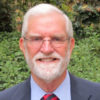
Lyle Dorsett
Professor, Senior Fellow for Spiritual Formation, CSLI
Team Members

Lyle Dorsett
Professor, Senior Fellow for Spiritual Formation, CSLILyle Dorsett, Professor, holds the Billy Graham Chair of Evangelism at Beeson Divinity School in Samford University. He taught courses in evangelism, spiritual formation and church history. He also serves as the pastor of Christ the King Anglican Church in Homewood, Alabama. Lyle received his PhD in American history and has published numerous books, including several Christian biographies and three works on C. S. Lewis.





